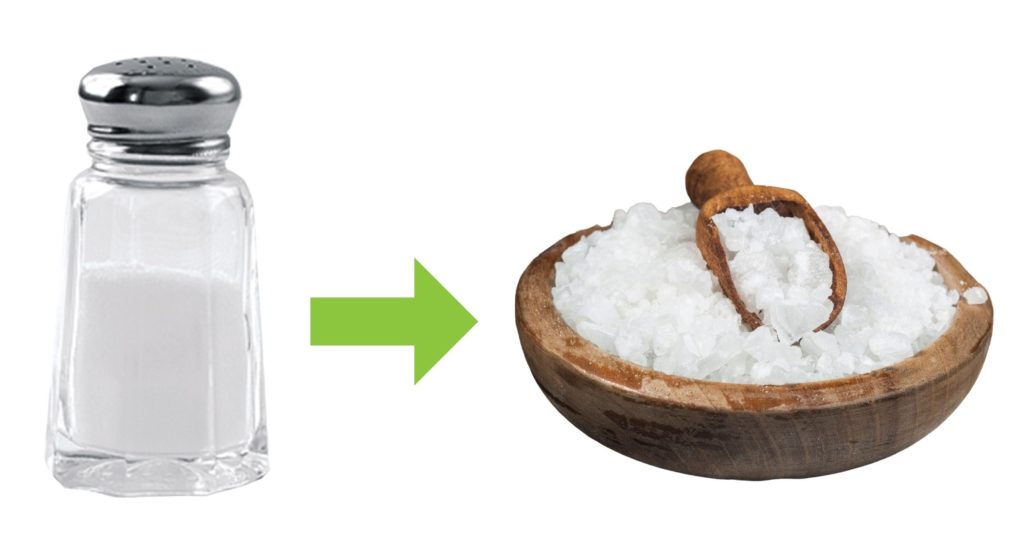
The 9 Easiest Ways to Boost Your Health

Get access to everything we publish when you
sign up for Outside+.
Most of us know that good health is important and that we try our best to incorporate healthy habits in the areas of our lives that matter most. However, few of us realize just how far-reaching good health is — and that it impacts nearly every single facet of our day-to-day lives, not just the end result.
Because your bodily systems are so deeply connected, good health is overarching. “Body systems and organs work together to keep you functioning properly, so when we don’t take care of one aspect of our health, it can have a trickle-down effect,” warns Josh Axe, DNM, CNS, DC, author of Ancient Remedies (Little, Brown Spark, 2021). “We’ve learned that the health of our gut, for example, is connected to brain and immune system health and that increased inflammation in the body can impact your mood and energy levels.”
Healthy habits don’t only influence your physical health but also your mental and emotional health. In fact, research has proved that there is a true mind-body connection. Several studies, including one published in the journal Clinics and Practice, have found people suffering from certain gut issues, including irritable bowel syndrome, metabolic disease and other gastrointestinal disorders, often have higher rates of anxiety and depression.
Healthy living also cuts down on one of the major underlying causes of disease in this country, per The Malaysian Journal of Medical Sciences: stress. While there are times we cannot control the stressors in our lives, we can control how we eat and move our body — two things that can reduce the amount of cortisol, the stress hormone, that is in our body, according to Tansy Rodgers, FNTP, functional nutritional therapy practitioner. “Taking some of the stress load off in the areas that you can have influence around is key, such as choosing highly nutritious whole foods and doing exercise that is right for your unique body,” she says. “When you can fuel your body in a low-stress way and move your body in a way that is right for you, other stressors in your life become that much more easy to manage.”
While living a healthier life might seem like a tall task to follow through on, you can start small. Here, experts share the easiest ways to boost your health each day.
1. Get Clear on Your Goals
Stop and truly think about what being healthy means to you. This can be different for everyone, according to Sonia Satra, certified life coach and founder and CEO of Moticise. “Perhaps for you, being healthy means having enough energy to play with your children or grandchildren or doing things you enjoy without constant pain,” she says. “The specificity is important, so it doesn’t remain this elusive, impossible-to-reach goal.”
2. Find Movement That Brings You Joy
Not everyone enjoys exercising — and that’s OK. However, the American Heart Association recommends at least 150 minutes of moderate-intense physical activity each week for optimal health. One of the easiest ways to boost your health is to find an exercise routine that you want to maintain. “It will be easier to find time to fit in fitness if it’s something you look forward to,” says Lianna Nielsen, London-based integrative nutrition health coach. Whether it’s yoga, fast-paced walking or dance cardio, finding an extra 20 minutes a day to get the blood circulating through your body and your heart pumping a little faster can make a huge difference in your health in the long run.
3. Pick Up Some Weights
Cardio isn’t the only type of exercise. In fact, strength training, or lifting weights, keeps your muscles strong, helps you burn more calories, reduces your risk of injury, boosts your heart health and more.
Satra suggests keeping a set of dumbbells by your desk and doing some sets of biceps curls, lunges or shoulder presses in between calls and meetings. “To supercharge that, adding a mindset component to your movement — like saying affirmations while curling or adding gratitude to your lunges — will improve your health and your happiness,” she adds.
4. Go to Bed Just a Little Earlier
Even nodding off 15 minutes earlier than you’re used to can make a huge impact on your health and is one of the easiest ways to boost your health, Rodgers notes. “In the short term, not getting enough sleep increases your stress levels, causes hormonal imbalances, can cause weight gain and, in the long run, can actually cause strokes, heart attacks, inflammatory conditions, mood imbalances and even memory problems,” she says. “The amount of sleep you need varies from person to person, but on average, seven to nine hours of sleep a night is optimal.”
5. Add One Serving of Vegetables Into Your Day
We all know that vegetables are some of the most nutrient-dense foods we can possibly eat. However, it can be hard to incorporate them if we just eyeball the amount we think we should have. That’s why Rodgers recommends aiming for one serving of vegetables a day — i.e., adding lettuce and tomatoes to your sandwich or extra frozen veggies in your soup. “What is so magical about this tactic is that you are getting in more nutrition, but you are not depriving yourself of anything — and you may find that you are not as hungry for or don’t have the room for some of the foods that are not as healthy (that is, sugary desserts or the second helping of mac and cheese),” she says.
6. Reduce Your Sugar Intake
A diet high in sugar has been linked to a myriad of health issues, including blood sugar issues, low energy, inflammation, moodiness, weight gain and more, Axe warns. “If you want to take the first step to eating a healthier diet, it starts with reducing your sugar intake and avoiding foods with added sugars, like soft drinks, processed snacks and packaged baked goods,” he says.
7. Switch Table Salt to Sea Salt
While too much salt can be bad for your health, not eating the right kind of salt also can have a negative effect. Rodgers recommends using a Himalayan or Celtic sea salt instead of regular table salt, which is minimally processed and super abundant in minerals such as iron, calcium and potassium. “You are also helping your body stay better hydrated, balance out electrolytes, reduce fluid retention and reduce muscle cramping, just to name a few,” she says.
8. Reassess Your Posture
While good posture might not seem like the most important change to make for your health, you should reconsider. In fact, good posture can help reduce lower-back pain, boost your energy levels and give you more enjoyment out of life, according to Rodgers. “Reassessing your posture is the first super-easy step, and from there, you can take other small action steps — maybe it is a simple adjustment to your computer screen or your chair, a set of stretches and exercises to better balance your body out, or maybe it is working with a therapist or a coach to learn self-confidence so you can feel better to stand tall and not hunch over so much,” she says.
9. Incorporate a Mindfulness Practice
Mindfulness — the practice of focusing on being fully present — is one of the easiest ways to boost your health, helping to lower stress and inflammation, bring clarity and boost your mood, according to Nielsen. “Much like exercise, I tell my clients to experiment with different modalities to find something they enjoy so they will actually do it,” she says. “Starting with just three minutes a day can actually make a huge difference in your physical and mental health.”
Published at Wed, 09 Mar 2022 08:40:09 -0800






